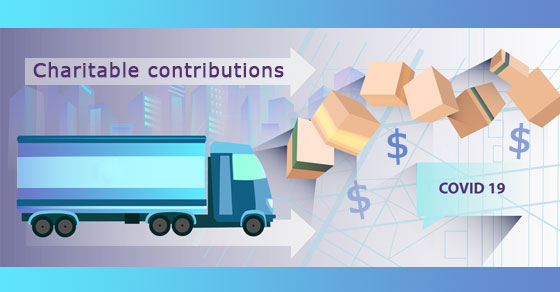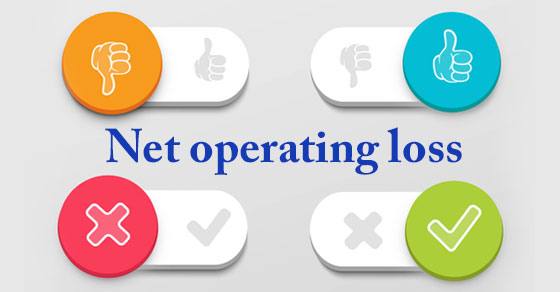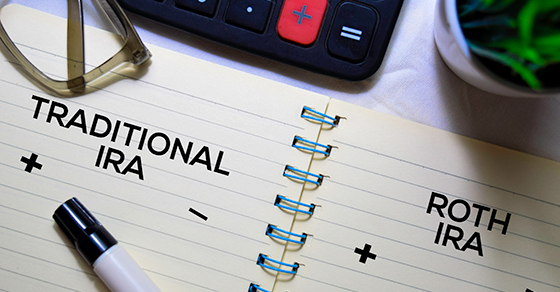How to succeed at virtual team building
- ByPolk & Associates
- May, 15, 2020
- All News & Information, COVID-19 Resources
- Comments Off on How to succeed at virtual team building
Thanks to affordable technology, more and more companies have been allowing employees to work remotely. And, with the onset of the pandemic, many businesses have had to mandate that employees work from home. As a result, virtual team building has become even more critical. Make sure every remote team develops and follows processes that produce results consistent with those generated on your physical premises. Also, reinforce that your expectations are the same whether an employee works remotely or on-site. You can help remote workers feel more connected by regularly holding Web-based meetings, as well as by holding meetings specifically geared toward team building. Contact us for more info.
There’s still time to make a deductible IRA contribution for 2019
- ByPolk & Associates
- May, 15, 2020
- All News & Information, COVID-19 Resources
- Comments Off on There’s still time to make a deductible IRA contribution for 2019
You still have time to make your 2019 traditional and Roth IRA contributions. The deadline is generally April 15 but because of the novel coronavirus (COVID-19) pandemic, the IRS extended the deadline until July 15, 2020. If you qualify, deductible contributions to traditional IRAs can lower your 2019 tax bill. Even nondeductible contributions can be beneficial because of tax-deferred growth. If you’re eligible, the 2019 contribution limit is $6,000 (plus $1,000 for those age 50 or older on Dec. 31, 2019). However, your deduction or contribution may be reduced or eliminated based on your income. Contact us to learn more about retirement saving in your situation.
Business charitable contribution rules have changed under the CARES Act
- ByPolk & Associates
- May, 15, 2020
- All News & Information, COVID-19 Resources
- Comments Off on Business charitable contribution rules have changed under the CARES Act
Many businesses are donating to charity in light of the pandemic. In order to encourage giving, the CARES Act made some changes to the rules. Under one change, the limit on charitable deductions for corporations (generally 10% of modified taxable income) doesn’t apply to qualifying contributions made in 2020. Instead, a corporation’s contributions, reduced by other gifts, can be as much as 25% of modified taxable income. No connection between contributions and COVID-19 is required. In another change, for food inventory contributions made in 2020, the deduction limit increases from 15% to 25% of taxable income for C corporations and 15% to 25% of the net aggregate income for other businesses.
New $2 Million Threshold Necessity of Loan Safe Harbor and Adequacy of Repayment if Necessary
- ByPolk & Associates
- May, 15, 2020
- All News & Information, COVID-19 Resources
- Comments Off on New $2 Million Threshold Necessity of Loan Safe Harbor and Adequacy of Repayment if Necessary
Paycheck Protection Program (PPP) Update The SBA just produced a new FAQ on May 13, 2020 (question #46) with the following question: “How will SBA review borrowers’ required good- faith certification concerning the necessity of loan request?” “. . . any borrower that, together with its affiliates who received PPP loans with an original principal […]
Paycheck Protection Program (PPP) – New Considerations to Navigate in Uncertain Times
- ByPolk & Associates
- May, 12, 2020
- All News & Information, COVID-19 Resources
- Comments Off on Paycheck Protection Program (PPP) – New Considerations to Navigate in Uncertain Times
Just as a lighthouse warns a ship in foggy or stormy conditions of landfall ahead your trusted advisors here at Polk and Associates can serve as your beacon to assist your business during these uncertain and often confusing times. Especially regarding the ever-changing nature of the PPP loan programs. Since the PPP loan program opened […]
The CARES Act liberalizes net operating losses
- ByPolk & Associates
- May, 07, 2020
- All News & Information, COVID-19 Resources
- Comments Off on The CARES Act liberalizes net operating losses
The CARES Act includes favorable changes to the rules for deducting net operating losses (NOLs) to provide businesses with relief from the novel coronavirus (COVID-19) crisis. It permanently eases the taxable income limitation on deductions. For tax years beginning before 2021, the CARES Act removes a taxable income limitation on deductions for prior-year NOLs carried over into those years. So NOL carryovers into tax years beginning before 2021 can be used to fully offset taxable income for those years. These changes may affect prior tax years for which you’ve already filed tax returns. To benefit from the changes, you may need to file an amended tax return. Contact us to learn more.
Do you have tax questions related to COVID-19? Here are some answers
- ByPolk & Associates
- May, 07, 2020
- All News & Information, COVID-19 Resources
- Comments Off on Do you have tax questions related to COVID-19? Here are some answers
The coronavirus (COVID-19) pandemic has affected many Americans’ finances. You may have questions about the implications. For example, if your employer is requiring you to work from home, can you claim home office deductions on your tax return? Unfortunately, if you’re an EMPLOYEE who telecommutes, home office expenses aren’t deductible through 2025. What about unemployment compensation? Is it taxable for federal tax purposes? Yes. This includes state unemployment benefits plus the temporary $600 per week from the federal government. (Benefits may also be taxed for state tax purposes.) Contact us if you have questions or need more information about these or other COVID-19-related tax issues.
Subchapter V: A silver lining for small businesses mulling bankruptcy
- ByPolk & Associates
- May, 07, 2020
- All News & Information, COVID-19 Resources
- Comments Off on Subchapter V: A silver lining for small businesses mulling bankruptcy
Although bankruptcy obviously isn’t an optimal outcome for any small business, there may be a silver lining for those considering it: The Small Business Reorganization Act of 2019. This law, which took effect in February, added Subchapter V to the U.S. bankruptcy code. Its purpose is to streamline the reorganization process for small businesses and, in some cases, improve their odds of recovery. Subchapter V originally applied only to companies or proprietors with less than about $2.7 million in debt. However, the Coronavirus Aid, Relief, and Economic Security Act temporarily raised this amount to $7.5 million in debt. We can help you choose the most prudent path forward for your company.
Hiring independent contractors? Make sure they’re properly classified
- ByPolk & Associates
- Apr, 30, 2020
- All News & Information, COVID-19 Resources
- Comments Off on Hiring independent contractors? Make sure they’re properly classified
As a result of the coronavirus (COVID-19) crisis, your business may be using independent contractors to keep costs low. But be careful that these workers are properly classified for federal tax purposes. If the IRS reclassifies them as employees, it can be costly. The question of whether a worker is an independent contractor or an employee is a complex one. The IRS and courts have generally ruled that individuals are employees if the businesses they work for have the right to control and direct them in their jobs. Otherwise, they’re generally contractors. Contact us if you’d like to discuss how the rules apply to your business. We can help ensure that none of your workers are misclassified.
IRA account value down? It might be a good time for a Roth conversion
- ByPolk & Associates
- Apr, 30, 2020
- All News & Information, COVID-19 Resources
- Comments Off on IRA account value down? It might be a good time for a Roth conversion
The coronavirus (COVID-19) pandemic and the ensuing stock market downturn has caused the value of some retirement accounts to decrease. But if you have a traditional IRA, a downturn may provide a valuable opportunity: It may allow you to convert to a Roth IRA at a lower tax cost. Roth IRA qualified withdrawals are tax free and you don’t have to begin taking RMDs after you reach age 72. But if you convert to a Roth, you’ll owe income tax on the converted amount. If your traditional IRA has lost value due to a market downturn, converting to a Roth now will minimize the tax, and you’ll avoid tax on future appreciation. Interested? Contact us to see whether a conversion is right for you.











You must be logged in to post a comment.